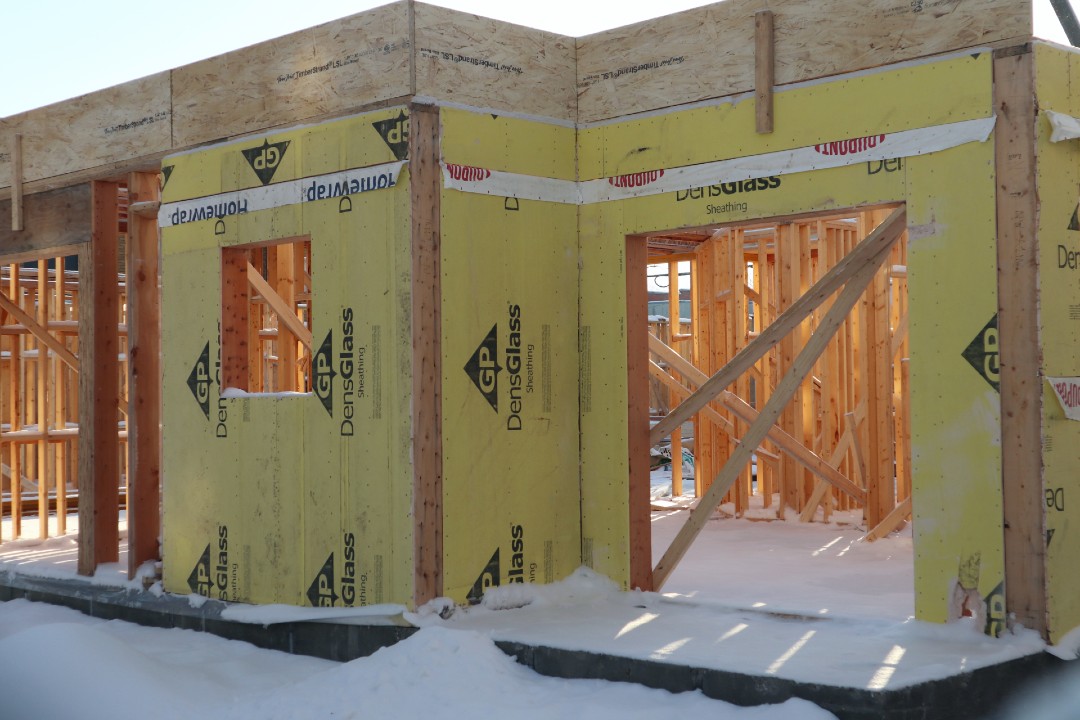A provincial portal aimed at identifying processes that slow home construction could zero in on a proposed City of Edmonton policy aimed at pushing suburbs to be complete before starting a new development.
The Housing Delays Portal, which the province launched in November, will allow developers to report red tape and other policies they think lead to undue delay in home construction. The province said it wants to know about federal or provincial policies, laws, standards, or processes, and municipal bylaws or processes that cause new housing to be delayed. The province said it will use the information to track trends and identify delays and may further engage with municipalities if it notices issues.
"Alberta's government will continue to work with municipalities and find solutions to speed up the home-building process," Ric McIver, minister of municipal affairs, said in a statement. "The Stop Housing Delays portal will give us another tool to inform those discussions and identify areas where we can improve the pace of home building."
Kalen Anderson, CEO of the real estate advocacy group BILD Edmonton Metro, told Taproot the substantial completion standard is an Edmonton process and requirement that could potentially be reported.
That policy would prohibit developers from planning new developments in the most recently annexed parts of Edmonton until the adjacent neighbourhoods are complete with schools, stores, parks, and libraries. It comes from the City Plan and is meant to move Edmonton away from its traditionally sprawling development pattern, a city report said.
Anderson said this would mainly be felt in south Edmonton, where residential construction is booming.
Developers will not be able to begin statutory plans for the area until the land is released by council. Administration estimated that under the policy, housing could be available south of 41 Avenue SW by 2039 at the latest.
"The failure to plan the land south of 41st Avenue (SW) is holding back about 87,000 units in a housing crisis," Anderson said.
The provincial government said it introduced the portal because more housing is needed as Alberta's population grows at a record pace. More than 200,000 people moved to Alberta between April 2023 and April 2024.
Meanwhile, this year has been Edmonton's busiest on record for developing housing, according to Kim Petrin, deputy city manager of urban planning and economy. From January to October, Edmonton saw nearly 10,900 housing starts and issued 12,655 building permits. The city attributes this to streamlined permitting processes, updated regulations, and innovative solutions to infill development challenges.

Housing construction in Edmonton is at a record-breaking level, and the province has introduced a portal to try to speed it up further. (Stephanie Swensrude)
Still, Anderson identified further municipal processes that, if cut or modified, could help streamline housing construction further. She identified non-statutory studies as another city process that she views as adding delays to housing construction.
"In Edmonton there are often a lot of studies required, whether it's fiscal impact studies or wind studies or shadow studies," Anderson said.
The city could ask for rezoning applications to include up to 17 additional reports, depending on the proposed zone, the location of the property, the proposed size of the building, and other factors.
"I'm not trying to castigate any of those in particular, but in aggregate, they can potentially add a lot of delay that is not actually going to change the outcome," Anderson said.
Anderson said there can be many small and potentially duplicated steps in an application that could be rolled into one. For example, she questioned why projects need development permits if they've already been rezoned at a public hearing.
"Can building and development permits be put together? There's a lot of micro-steps that ... I think we can start to think about streamlining, and I think one of the pieces that could help with that is leaning into AI and automation," Anderson said.
The city is already using artificial intelligence to speed up housing construction. In September, Edmonton introduced an automatic development application system that can issue same-day building permits for single-detached and semi-detached homes in greenfield areas.
"Canadian housing is in an abysmal condition across the country — like, really, really bad in terms of the shortage of supply. Alberta has not fallen victim to that," Anderson said. "I think it's because we've done stuff like this, where we take it seriously and we actually name the goal, which is to improve, to beat the market, to reduce costs."
Other jurisdictions are changing policies to cut red tape and speed up the development process, including British Columbia, whose provincial government modified public hearing regulations earlier this year. Municipal governments typically hold public hearings for new and amended bylaws as well as rezoning applications, so that residents can show their support or opposition to the change. But B.C.'s new rules ban municipal governments from holding a public hearing if a proposed rezoning is consistent with the official community plan, the municipality's long-term planning document.
